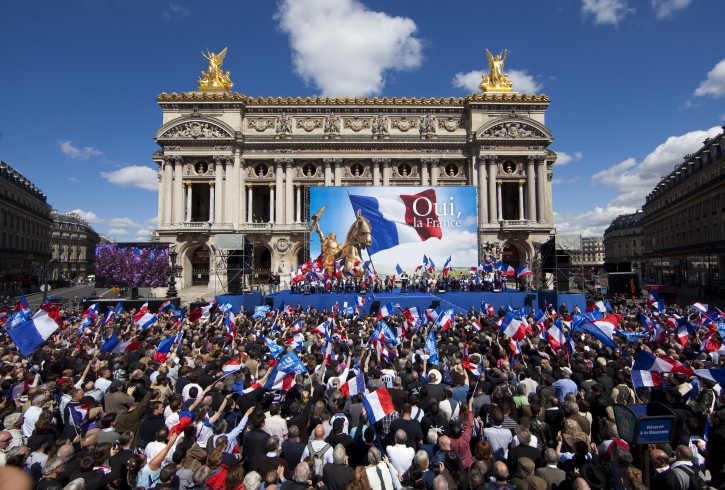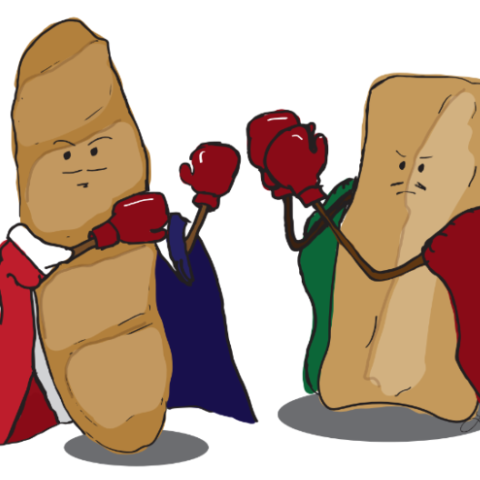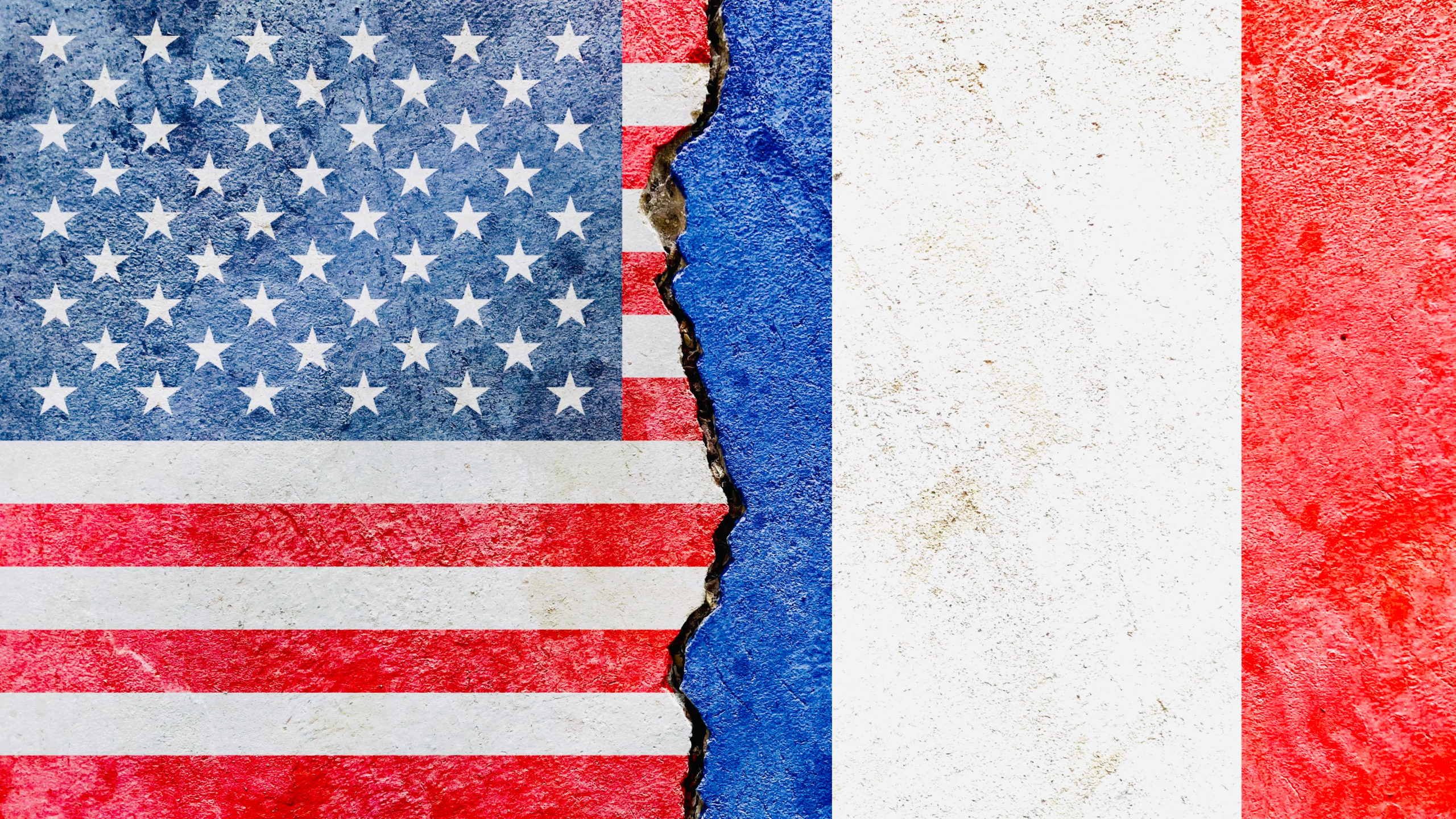While France has existed as the land separating channel and sea for millennia under various names: Gaul, Francia, France, and colloquially as “L’Hexagone” in reference to the country’s geographical shape, the French Fifth Republic itself is only 58 years old. The Fifth Republic was established in 1958 by French President Charles de Gaulle who instituted the semi-presidential system that split power between the prime minister and the president. In the coming months, the people of France will be heading to the ballot to elect a new president in one of the most important elections in French history.
The first round of the election will be held on April 23 and is likely to head to a run-off election on May 7. The issues at stake are of a familiar flavor in these times: international trade, immigration, terrorism, and the European Union. The election seem to be following the recent trend of absurdity in electoral politics.
The current president, François Holland, has opted not to run for re-election because of his dismal unpopularity. His approval rating went as low as four percent after two journalists published a book in November 2016 based on recorded interviews with the Socialist president. In the interviews, Mr. Hollande insults judges, his own ministers, and worse of all, the national football team, who he called “badly brought up kids”. Ironically, when it was revealed that Hollande was having an affair with Julie Gayet, a French Actress, his popularity rose by two points. However, Hollande’s unpopularity stems from more than just slips of the tongue and other body parts. A poll last year found that 67 percent of those polled believed 2016 to be a “bad year” for France, and in 2015, 81 percent believed the world to be getting worse. They are not being unreasonable considering their circumstances. The French youth unemployment rate is 23 percent, and the monstrous public sector accounted for 57 percent of GDP in 2015. However dreary these numbers may sound, the melancholy plaguing France goes beyond standard statistics. There have been 21 terrorist attacks in France since 2015, including the 2015 November Paris Attacks and the 2015 January Ile-de-France attacks at the Charlie Hebdo office in Paris, which took a combined total of 142 lives. It is clear why morale is low.
The current French presidential candidates promise to address issues of growth and terrorism but each candidate comes from a vastly different ideological perspective. Polls after the March 20th presidential debate have Emmanuel Macron of the moderate independent En Marche! Movement in the lead with Marine le Pen of the far-right National Front close behind and Francois Fillon of the conservative Republicans in third place. All three are eager to yank the steering wheel of France and move the country from its current destination of disrepair.
Fillon is a Thatcherite conservative who pledges to cut public spending, reduce strangling labor laws, and break trade union power in addition to supporting the burkini ban. Fillon was once second only to le Pen, often even leading at times, and had a chance of victory in the second round of voting. Things changed after Fillon was charged for embezzlement after it was revealed that his wife and two of his children were paid 900,000 euros of public money for jobs that they never did. Despite this hiccup, Fillon is still committed to his campaign, although the prospect of winning is now much more distant.
Macron, a centrist and Hollande’s former economy minister, is at the head of the newly created En Marche! Independent Movement. He has a much better chance against le Pen in the second round, standing to take 66 percent of the vote. Macron is pro-trade, pro-European Union, and has pushed through numerous business reforms during his tenure as economy minister. His policies and demeanor are a drastic change from the previous administration, and thus, are liked by those demanding a revision of the system. However, he is often criticized for his lack of experience; he has never ran or been elected to public office. Regardless, he is favored to receive a plurality in the first round of voting on April 23 and then a majority in May.
Le Pen, the leader of the far right National Front, has been riding the recent wave of nationalism that has hit the world. She has criticized globalization, the European Union, and Islam. She wants to raise trade tariffs, cut legal immigration, and represent the French working class. Sound familiar? Le Pen’s ability to articulate the plight of the working class, take advantage of Islamophobia, and respond to a declining sense of French culture had her in the lead until Macron caught up after the debate.
The two likeliest candidates to head into the run-off, Macron and Le Pen, are both slaps in the face to traditional French politics. Both are running as outsiders. Macron’s independent En Marche! Movement was founded only last year. The National Front has historically only had power on the fringes of society due to their extreme views in the past- Le Pen’s father and founder of the party is a holocaust denier, sympathetic to the pro-Nazi WWII French Vichy Government, and was kicked out of his own party by his daughter. The fact that both stand a chance to become president shows that the French are demanding a change in government. This march against the status quo is just another step down the path of change that the world has taken.
The candidate’s paths for change are in completely different directions. Macron wants to take France down the path of liberalism, but with a twist. He believes that France needs “vision” and not bundles of policies. The policies that he does have are quite radical for France: limiting public spending, having a state run unemployment benefit system, and a cutting of labor laws. Macron has stated that he wants to lead France to liberalism in a Nordic sense, but in reality, he has been short on specifics and thus his vision is more uncertain. Le Pen is the blue collar hero who vows to protect French sovereignty in every sense of the word: raising tariffs, limiting immigration, and withdrawing from the euro. Her path would lead to a nationalism bedeviled by economic interventionism and skeptical of outsiders.
The past year has seen battle between the forces of liberalism and nationalism. The victor of the duel in France will decide more than just the fate of their people, but the fate of liberalism across Europe. France’s liberals may hold steadfast and parry the tide of nationalism currently striking Europe. However, France may also follow the United Kingdom’s “Brexit” with their own “Frexit,” which could destabilize the European Union even further. Although Macron stands likely to win, Brexit and the election of Donald Trump has proven that polls cannot always be blindly followed. “En garde” will be shouted on April 23 and the duel decided on May 7.
France has a rich history of upheavals and revolutions as well as a penchant for taking to the streets when things aren’t going well. The current election is an extension of that suspicion of the ruling elite held over since the revolution. This suspicion will ensure a watchful eye on the next president, evident by the 10 million French who saw three and a half hour long presidential debate. Charles de Gaulle, who established the current semi-presidential system, once said “How can you govern a country that has 246 varieties of cheese?” That number is now over 1,200. The next head of L’Hexagone will be in for a challenge.


